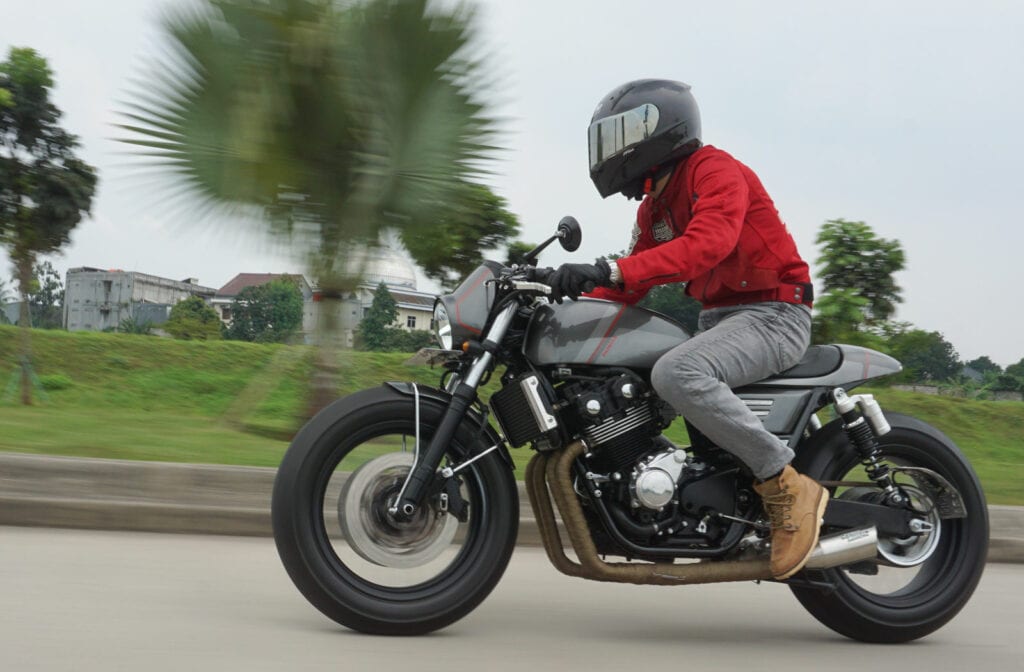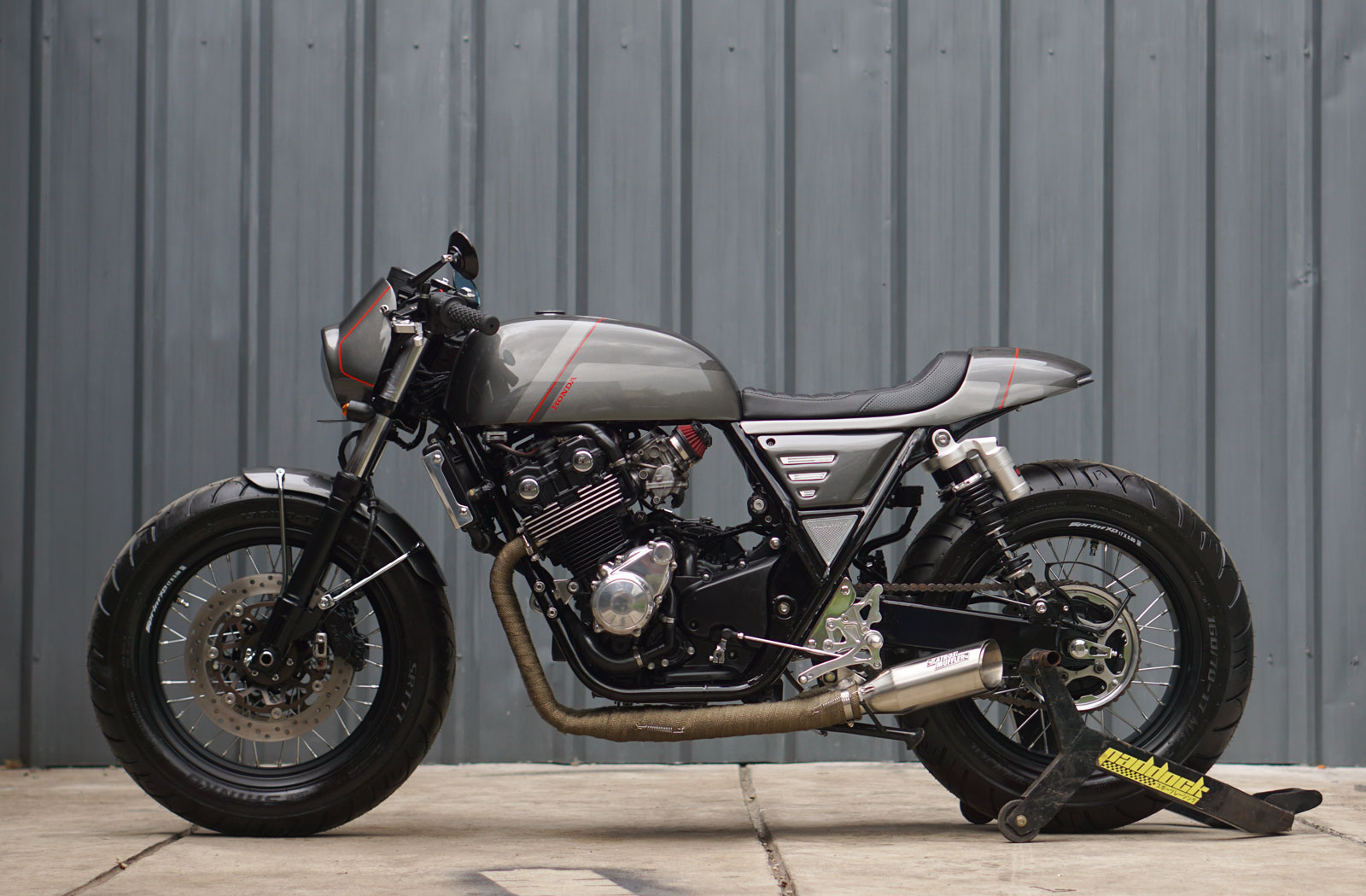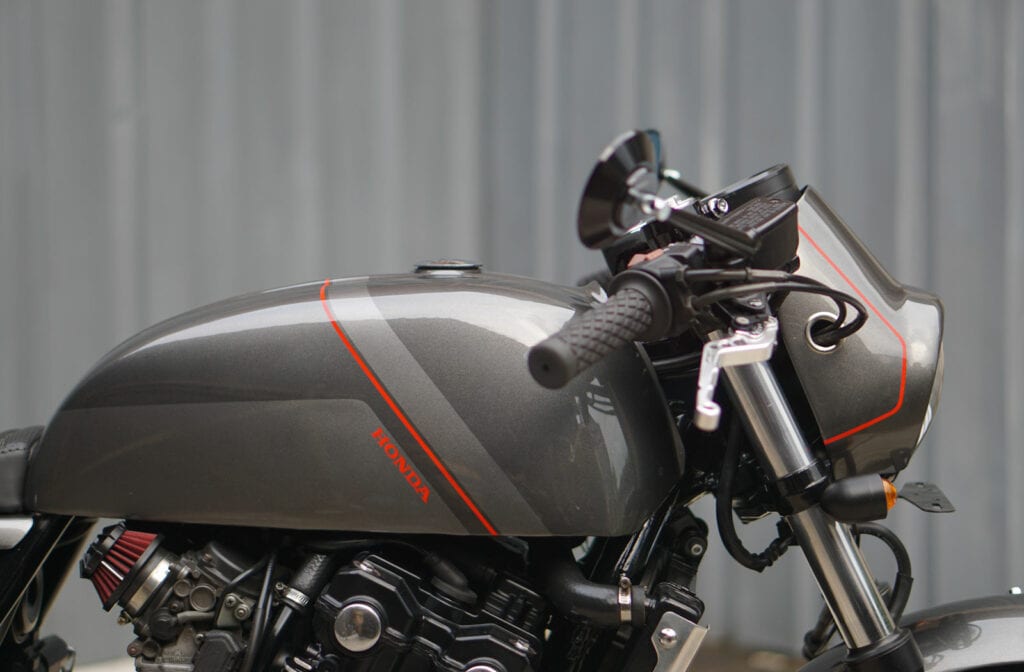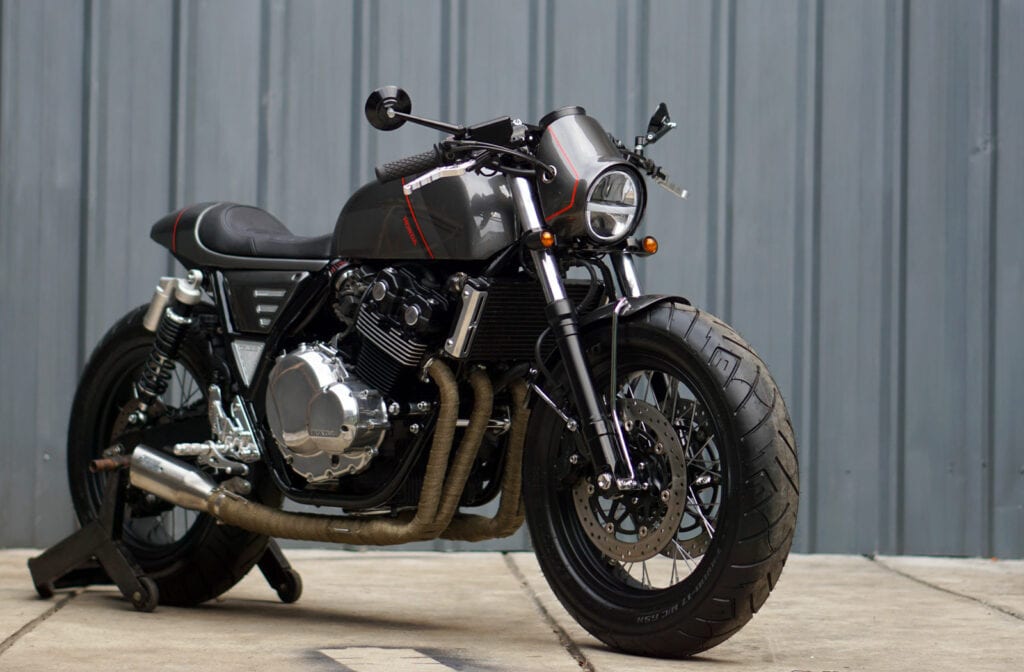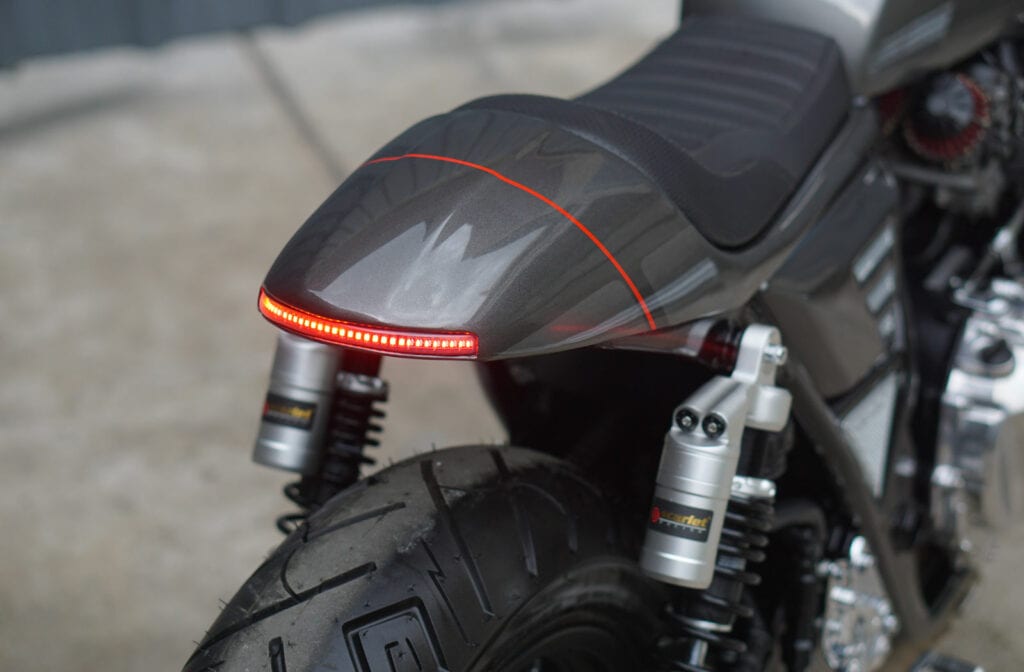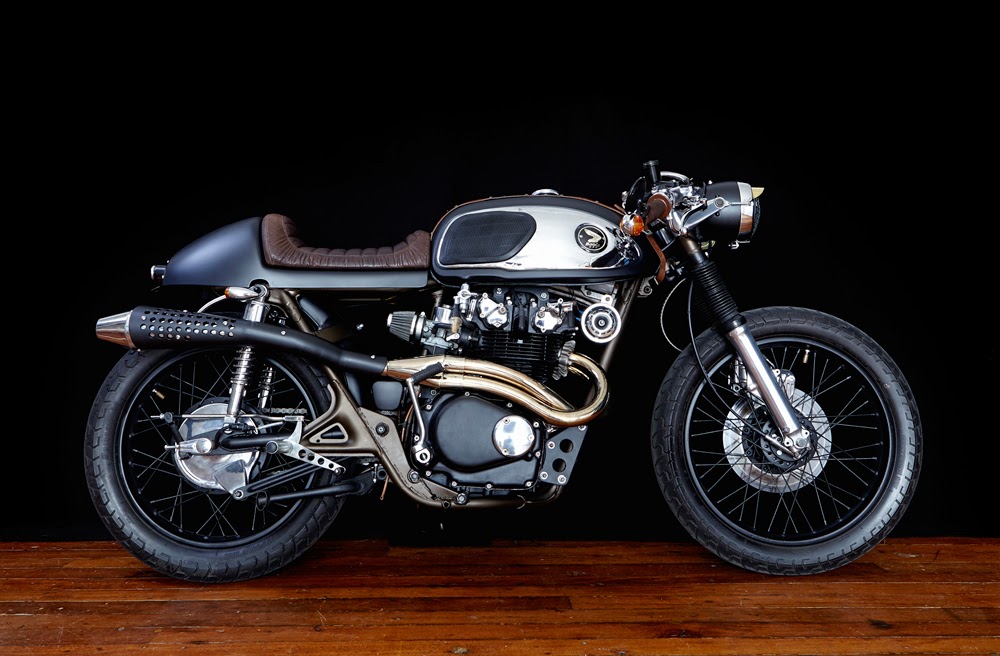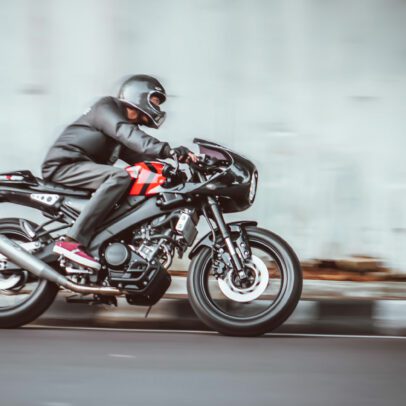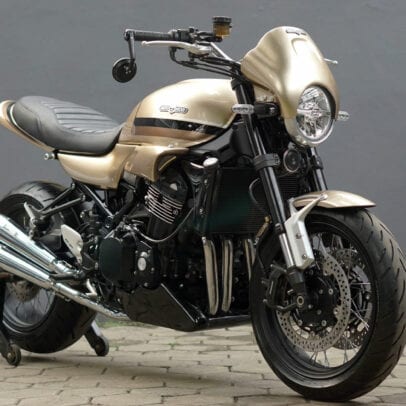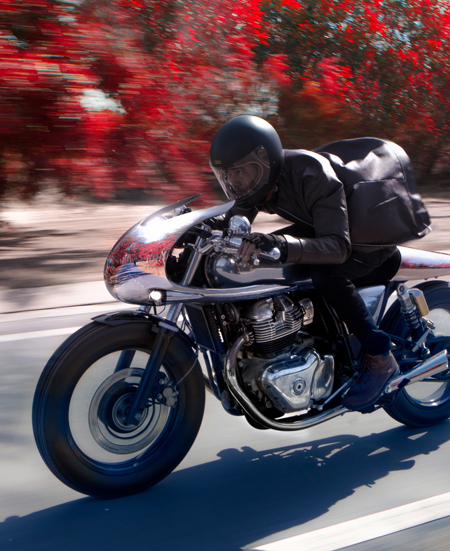The Honda CB400 Super Four is the embodiment of Universal Japanese Motorcycle Design. It’s a general-purpose standard motorcycle built to do one thing and do it well – travel from A to B without skipping a beat – and it’ll do it all day long. This is why the CB400 Super Four platform has been a consistent top seller in Japan for decades.
With a modest 55bhp on tap, the CB400 Super Four is no rocket. However thanks to its low kerb weight, nimble handling and revvy inline-four engine it can deliver plenty of thrills. The bike’s styling however is getting a little long in the tooth.
Next year the CB400 Super Four will be celebrating its 30 year anniversary. That’s is an impressive feat, but during that time its styling has remained relatively unchanged. Originally pitched as a retro-look model these days the CB400 looks more like an outdated nineties naked.
Faced with the prospect of modifying a 1996 CB400 Super Four for their customer Oman, Andi Akbar and the Katros Garage team had something much more retro in mind than Honda ever imagined.
Taking around 3 months to complete the build began after Oman purchased the bike from a friend with the sole intention of having Katros build him a cafe racer. “He wanted an affordable 4 cylinder engine as a base model,” says Andi. “We thought the CB400SF was a good choice.”
Things kicked off with the customary strip down to assess exactly how much work they had ahead of them. The CB400 Super Four has no shortage of wiring so along with restyling the CB they had to carefully consider how to manage all of the bikes electrics. As for the revised styling, the Katros team found their motivation for this project in another of Honda’s standard motorcycles. “The fuel tank of the 1970s Honda CB650 inspired us,” Andi explains. “It gives a muscular look to the bike.”
The new fuel cell is smooth and timeless, a far cry from the original angular item. It was hand-shaped in steel by Andi’s capable in-house craftsmen and fits snuggly over the engine. The tail unit is hand-formed too and covers a lightly modified subframe. During the process, careful attention was paid to how everything mounted to the CB400 chassis. This has resulted in a nicely balanced bone line that fits their cafe racer theme to a T.
After swapping the factory airbox out for a set of pod filters, Andi opted to close up the large hole left in the frame. This also gave his team the space they needed to stash a battery and all of the wiring components that are best left unseen. The bespoke vented side covers are tucked in tight so the only thing protruding beyond the boundary of the bodywork is the chunky inline-four.
With the bike now resembling a late model modern classic, Katros rounded out the transformation with a spattering of retro finishing touches. The front fender and its hardware were all made in-house as was the small cowl that shrouds the LED headlamp. To keep everything neat the control cables are routed through openings in the cowl and the aftermarket bars and mirrors have been positioned nice and low.
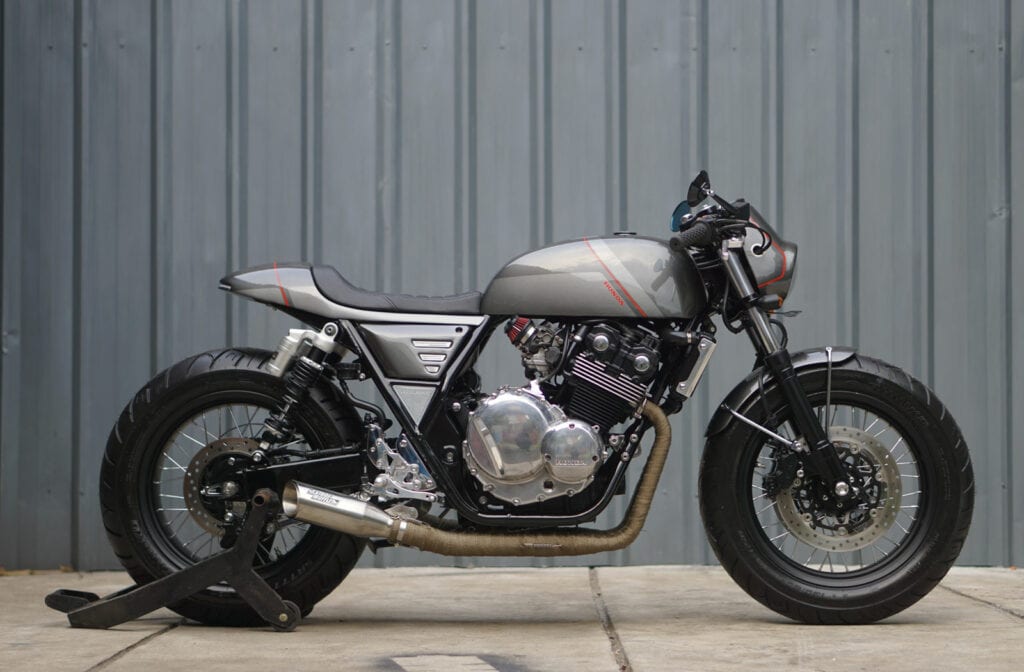

When it comes to retro styling – cast wheels rarely fit the bill, especially the 3 spoked eyesores on the CB400 Super Four. To remedy this Katros have shoehorned a set of spoked wheels into the CB forks and swingarm using specially made hubs.
Aside from a cosmetic overhaul, the bike’s 399cc mill remains at factory spec. The only improvement in performance came from freeing up the intakes, a new tune and a custom made 4-into-2 exhaust system. Despite that only delivering a small bump in power, there’s no doubt riding this bike is bucketloads more fun than its former self.
Finished in a sleek gunmetal grey with contrasting red pinstripes this is definitely one of the best looking CB400 Super Fours we’ve ever seen. If Honda decides to expand on their Neo Sport Classic range something akin to this custom gem would be most welcome.
